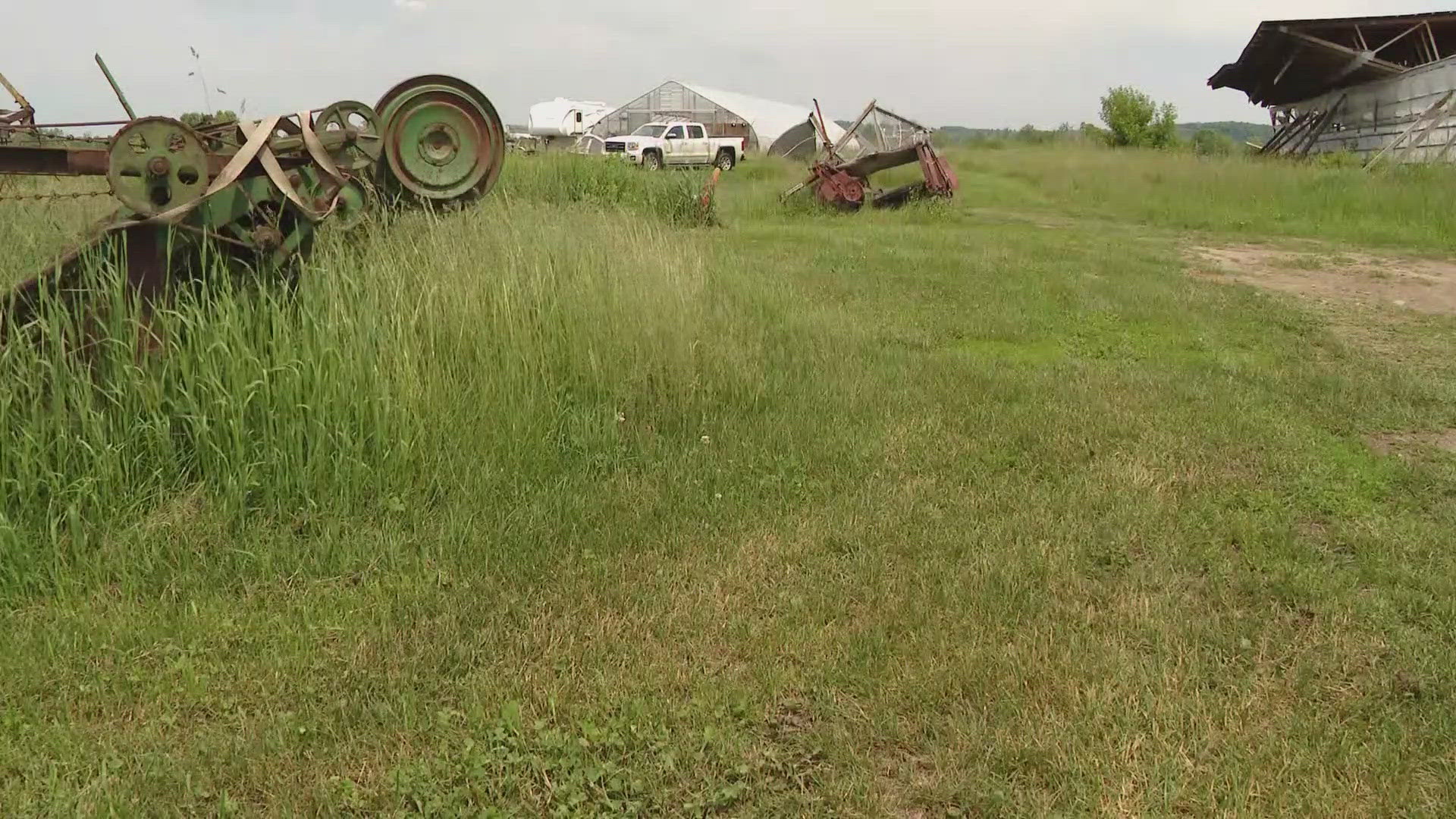UNITY, Maine — Several years after 70 Maine farms were found to be contaminated by PFAS chemicals, the future of those operations seemed bleak at best. The industrial compounds take years to break down in the human body. They have also been linked in studies to several health problems, including thyroid issues and developmental delays in children.
But things are beginning to turn around.
Since March, the state's PFAS fund has distributed nearly half a million dollars to help farms pivot their operations with new crops and new hope.
Sue Hunter said farming is her DNA. She milked her first cow at age 17. It's a legacy this grandmother almost had to walk away from a few years ago.
"My whole family has farming in their blood and did not want to give up on it," Sue said.
"Forever chemicals," known as PFAS, tainted the soil, crops, and water on her former dairy farm.
The source is municipal sludge shipped and used as fertilizer on the 100-acre farm in Unity, a state-approved practice that took place for decades.
But Sue and her son, who raises dairy cows, are finding a new way to plow forward.
Research has found that in some crops like corn, the stalk absorbs the chemicals, not the kernels. The grains do not seem to be affected by the PFAS, and corn can also be used as a crop.
The next step is purchasing new farm equipment to pivot the former dairy operation to corn and grain production. That's now a reality thanks to Maine's $65 million PFAS fund.
The fund, which opened for applications in March, will provide impacted farmers with financial assistance, purchase contaminated farmland from willing sellers, accelerate research to help inform on-farm management decisions, and support health-related initiatives.
According to Beth Valentine, the fund's director, about three dozen impacted farms have received nearly $500,000 to cover lost income and administrative and infrastructure costs. Three operations have applied for buyouts from the state. Farmers will be able to get more help next month with applications through a navigator program.
"The role of the navigator is to take that burden off the farmers to be familiar with what resources are available," Valentine explained.
By the end of the year, regulators plan to roll out blood testing, which is not covered by insurance and mental health services, and launch other studies, including looking into the health effects of contaminated dust.
"Looking at exposure from inhaling, dirty hands, eating food straight from the field, and dermal contact. Are they cause for concern? If so, what mediation measures?" Valentine explained.
Sue's tainted farm fields are now a living research project.
University of Maine scientists and graduate students are growing different varieties of forage crops, including corn and grains. They will be tested to see how much chemicals are taken out of the soil—answers for a farming community that has so much on the line.
"We need to find a solution that is worthwhile for us not to lose the land," Sue said sincerely.

